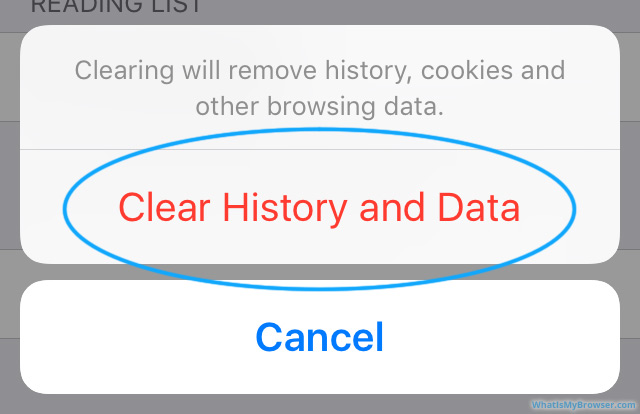
Effective Ways to Recover from Vitamin B12 Deficiency: Get Started Today!
Vitamin B12 deficiency is a significant health issue that affects many individuals, leading to a range of symptoms and potential complications if left untreated. This nutrient plays a crucial role in various bodily functions, including red blood cell formation, neurological function, and DNA synthesis. The importance of vitamin B12 cannot be overstated, especially for those on plant-based diets or older adults who face absorption challenges. This article will guide you through effective ways to recover from vitamin B12 deficiency in 2025, discussing its symptoms, diagnosis, and treatment options, as well as dietary recommendations and the importance of supplementation.
In this comprehensive guide, we will explore the major sources of vitamin B12, specifics about the recovery process, and practical tips for prevention. Additionally, you'll find suggestions for dietary changes, supplementation options, and key takeaways to support your recovery journey.

Recognizing Symptoms of B12 Deficiency Early
Recognizing the symptoms of vitamin B12 deficiency is crucial for timely diagnosis and treatment. Common symptoms include fatigue, muscle weakness, neurological disturbances such as tingling in limbs, and cognitive difficulties.
Building on these foundations, it’s essential to understand that many individuals, particularly the elderly or vegans, may exhibit unique presentations of these symptoms.
Identifying B12 Deficiency Symptoms
Symptoms could range from mild fatigue and weakness to more severe signs like numbness, balance issues, or even depression. It’s important to not ignore the initial signs, as chronic deficiency can lead to irreversible nerve damage. Some individuals may experience low mood or cognitive decline, which underlines the importance of early intervention and regular check-ups to monitor B12 levels.
Common B12 Deficiency Symptoms in Different Age Groups
In children, symptoms may manifest as developmental delays, while the elderly might experience cognitive decline or fatigue. Understanding how B12 deficiency presents differently depending on age helps create targeted prevention and treatment strategies.
Long-Term Effects of Untreated B12 Deficiency
If not addressed, vitamin B12 deficiency can lead to significant complications. Long-term nerve damage, memory loss, and neurological issues are consequences of untreated deficiencies. Awareness of these effects prompts greater attention to dietary intake and monitoring characters for potential deficiencies.
Diagnosis and Testing Procedures for B12 Deficiency
Obtaining an accurate diagnosis is vital for effective recovery from vitamin B12 deficiency. The diagnosis usually involves blood tests that measure the levels of B12 and check for signs of anemia. Following this understanding, we can delve into the various testing procedures that ensure precise diagnosis.
Understanding B12 Testing Procedures
Healthcare providers typically recommend blood tests to determine serum B12 levels. The procedure may also include other tests, like methylmalonic acid (MMA) and homocysteine levels, which can provide insights into your B12 status and absorption capabilities.
Interpreting Blood Test Results
Interpreting results requires a comprehensive understanding of normal B12 levels versus signs of deficiency. Familiarity with these indicators allows individuals to take proactive steps toward treatment and prevention.
Consultation with Healthcare Professionals
Engaging with healthcare professionals for interpretation of blood tests and subsequent recommendations is essential. They can provide personalized advice regarding supplementation and dietary changes necessary for recovery.
Effective B12 Deficiency Treatments
Once diagnosed, it’s time to consider effective treatment options for vitamin B12 deficiency. Treatments can depend on the severity of the deficiency and its underlying cause. This naturally leads us to explore the best methods for recovery.
Vitamin B12 Supplements: Oral vs. Injection
Both oral supplements and B12 injections offer effective recovery options. Oral supplements may be beneficial for those who have mild deficiencies, while injections are often recommended for severe B12 deficiency or when absorption is a concern, such as in pernicious anemia.
Daily B12 Requirements and Supplementation Guidelines
Understanding the recommended daily intake of B12 is crucial for adequate recovery. Adults generally require about 2.4 micrograms per day, but this can vary according to age, pregnancy, and health conditions. Compliance with supplementation guidelines helps maximize recovery outcomes.
Dietary Sources of Vitamin B12
Incorporating natural dietary sources rich in B12 can significantly impact recovery. Quality sources include animal products like meats, fish, eggs, and dairy; however, vegans and vegetarians should consider fortified foods or specific vegan B12 supplements, as natural sources may be limited.

Vegan Sources and Their Importance
As many individuals follow vegan or vegetarian diets, understanding sources of B12 is crucial for maintaining health. With these basics established, let’s look at the importance of ensuring adequate intake from these sources.
Vegan B12 Recommendations for Adequate Intake
Vegan diets can lead to deficiencies if not properly managed. Hence, incorporating fortified foods such as plant-based milks, nutritional yeast, and breakfast cereals is vital to meet daily B12 requirements. Engaging with dietary habits to enhance B12 intake can ward off deficiency.
Impact of Nutritional Yeast and Fortified Foods
Nutritional yeast not only adds flavor but is a fantastic source of B12 for vegans. Fortified foods play a crucial role in providing the essential nutrient needed to support overall health in a vegan diet.
Tracking Recovery Progress for B12 Deficiency
Monitoring the recovery process ensures that the methods employed are effective. Following this approach, we can explore the best ways to track and assess recovery.
Importance of Regular Check-ups
Regular health check-ups allow for ongoing evaluation of B12 levels. Keeping track of recovery progress helps in determining the effectiveness of treatment methods, ensuring optimal health outcomes.
Evaluating Dietary Habits for Improvement
Reviewing your dietary intake is crucial in shaping future eating habits. Assessing the types of foods consumed and their ability to provide adequate B12 can help maintain optimal health.
Consumer Awareness and Health Education
Staying informed through community health education initiatives regarding the importance of B12 can significantly impact individual health outcomes. Seeking out knowledge and understanding can help prevent deficiencies before they arise.
Q&A Section: Addressing Common Concerns About B12 Deficiency
Here are some frequently asked questions regarding vitamin B12 deficiency:
What are the primary symptoms of vitamin B12 deficiency?
Common symptoms include weakness, fatigue, hair loss, memory loss, and tingling in limbs. Some may also experience mood changes or cognitive difficulties.
How long does it take to recover from vitamin B12 deficiency?
The recovery timeline can vary significantly across individuals. Generally, those receiving injections may notice improvements within a few days, while dietary changes may take weeks to reflect in blood levels.
Can B12 deficiency lead to serious health issues?
Yes, untreated B12 deficiency can result in severe neurological damage, dementia, and hematological disorders.
Are there risks associated with high doses of B12 supplements?
Vitamin B12 is generally considered safe even at high doses, as it is water-soluble, meaning excess amounts are excreted through urine. However, consultation with a healthcare professional is always recommended.
What is the best method for supplementation: oral or injectable?
The best method varies based on the individual’s health status, absorption capabilities, and preference. Injections may be necessary for those with absorption issues, while others may effectively use oral supplements.